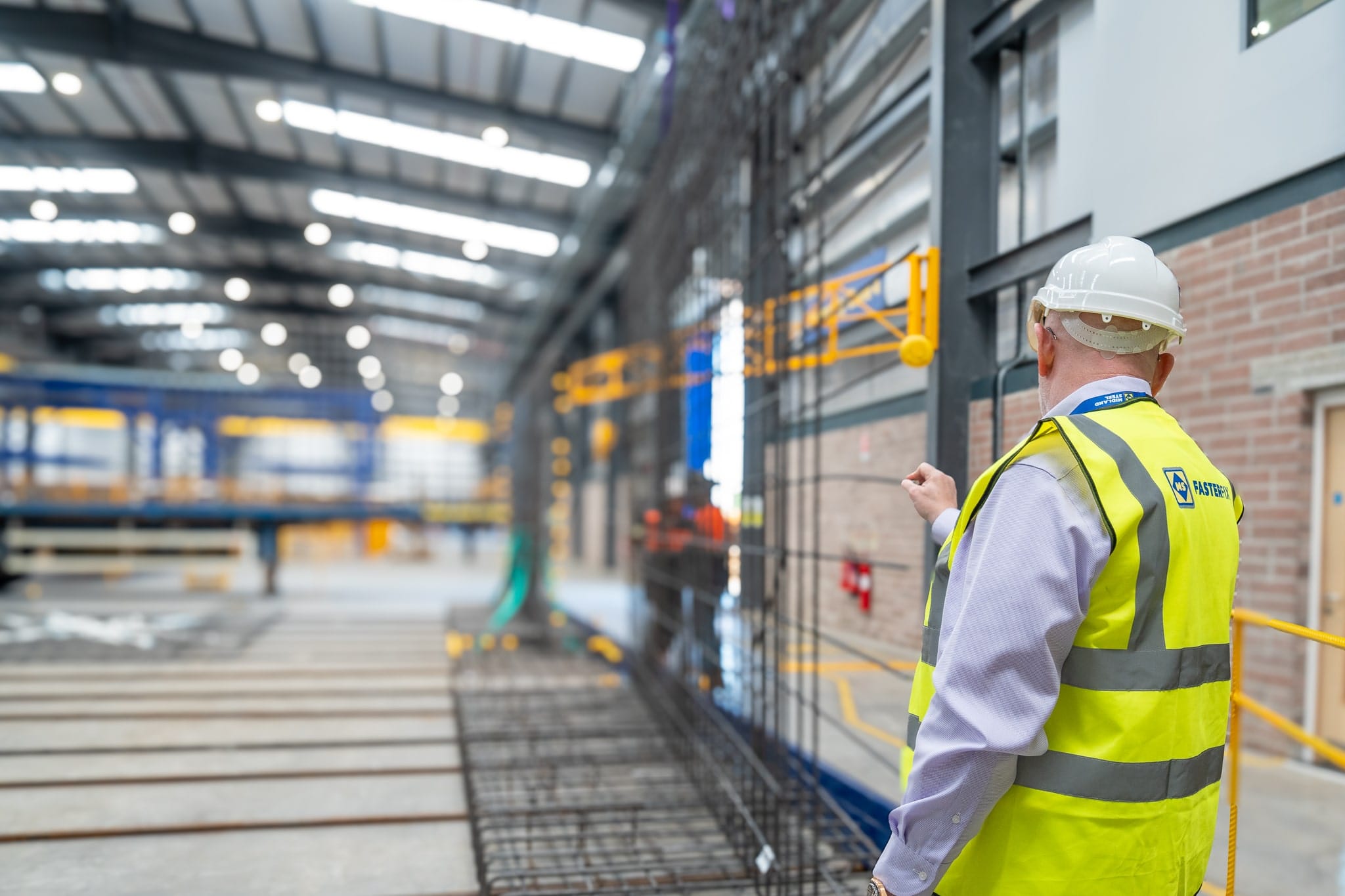Tullamore played host to a National Conference on the Economic Opportunities arising from Climate Action, and how local government can support as drivers for change.
The event was organised by CARO Climate Action Regional Offices and the Local Authorities, and MC on the day was Newstalk’s Jonathan Healy.
In his keynote address, Minister for Enterprise Trade and Employment Simon Coveney highlighted how the net-zero evolution is taking place for both enterprise and society, while emphasising that sustainable practices must now become the norm. The role of local government in supporting new and existing businesses in this transition is key, and significant initiatives continue to be put in place to ensure there is a roadmap for decarbonising enterprise, with a focus on new supports, new skills, new training and new education to take advantage of new opportunities.
Business Models for Climate Action
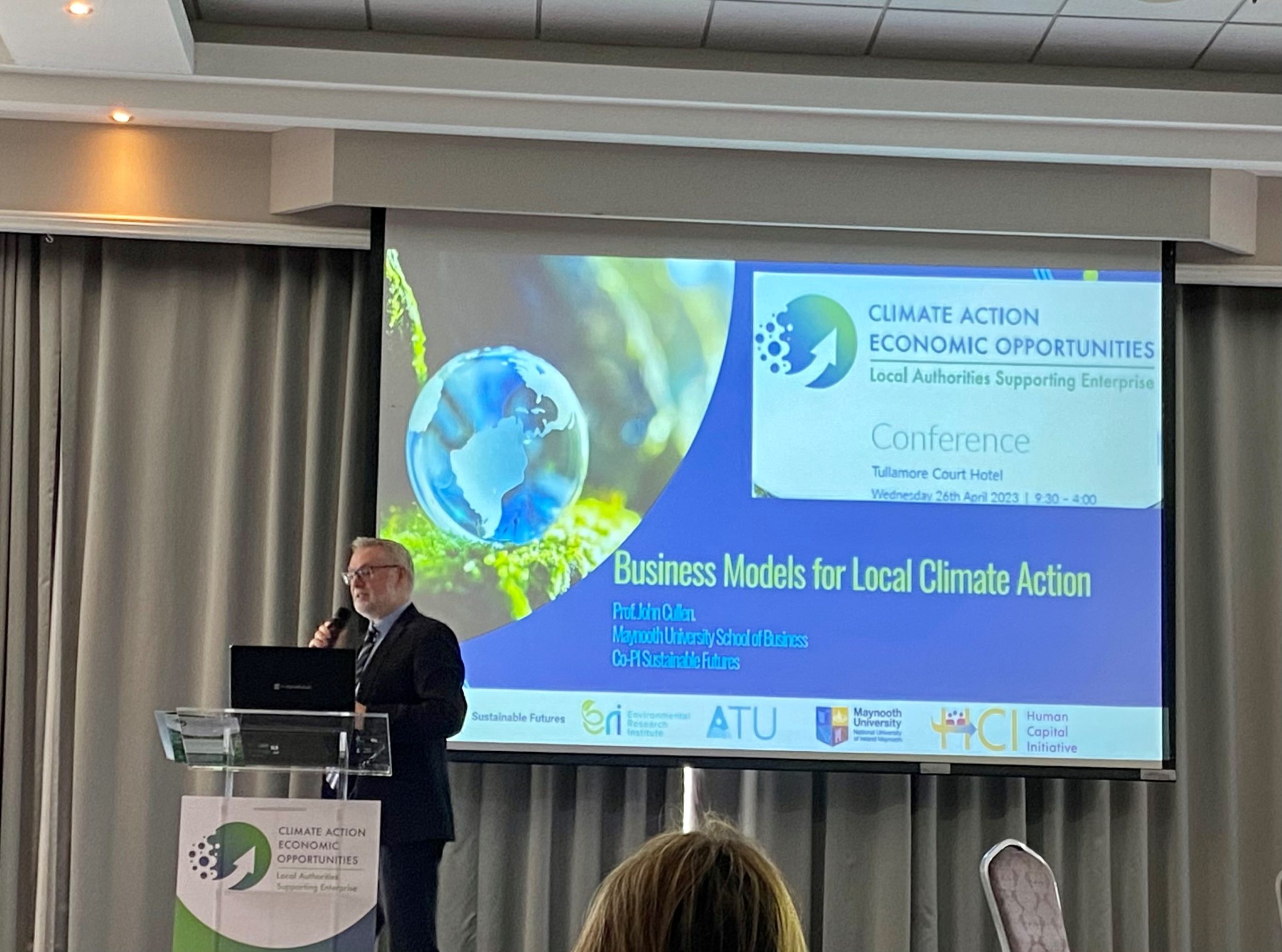
Professor John Cullen from Maynooth University spoke on business models for local climate action. The increasing importance of sustainability for business has led to significant demand for skills in the area of sustainability strategy. While many businesses are well down the road on their sustainability journey, many more are also just starting, and this is where trusted sources of guidance, and clear paths are of importance. For a Sustainability Strategy to work, it should have 4 key elements
- Economic – it should be financially viable
- Environmental – reducing impact on the environment must be central to the sustainability strategy
- Social – must be considered as social issues can often serve to distract from environmental issues
- Cultural – match the sustainability strategy to where you are
The strategy can then be framed on 3 horizons - BAU Business as Usual – what your business can do right now
- Disruptive Innovation – what can your business do differently or in new ways to drive change
- Emerging Future – what may become available in the future for your business
Skills for Sustainability
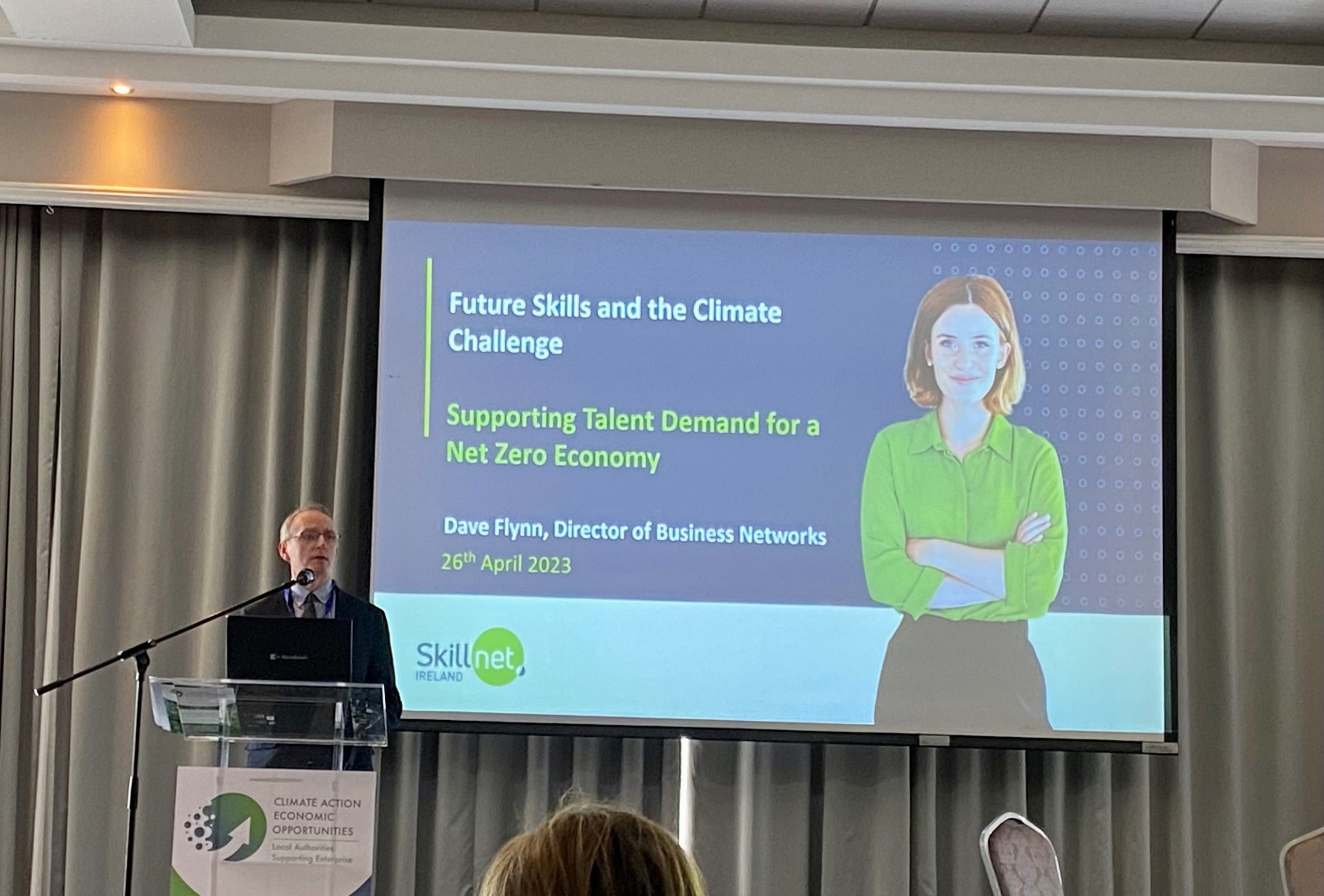
Dave Flynn from Skillnet highlighted that the past 24 months has seen a major increase in demand for skills in the area of sustainability from businesses. In 2022, the Agency worked with 22,000 businesses in talent development, providing training to 92,000 people across 10,000 programmes. Under Sustainability, their programmes can be categorised under 3 areas:
- Cross-sectoral skills and knowledge – with sustainability impacting all areas of business, it has applications in business functions from operations, to finance to marketing and beyond. It’s often an engaging topic for staff, and one which teams want to be involved in. The Skillnet Climate Ready Academy offers a range of programmes in this space.
- Green Industry – specialist green industries are already a growing area, and programmes such as the GreenTech Skillnet programme offer skills programmes to suit.
- Transformation for other sectors – Sustainable skills in Finance, ICT and Construction are growing in importance and in demand with employers. Programmes such as the Sustainable Finance Skillnet and the Modern Methods of Construction programme from LOETB in Mount Lucas are exemplars.
International Context
The International context was presented by Andrew Walker of LGiU, who have conducted research in countries around the world including in Europe, North America and Australia on climate action programmes and their benefits for jobs, savings, and societal benefits. Through their research, 3 key topics emerged in terms of best practice
- Place – most important is place, as it’s about the right action in the right place, linked to the local situation. What works in a hot climate like Australia, is very different to what may work in Northern Europe. Regions should consider the strengths in their local economies and how they can be harnessed. Natural assets are also important as nature is at the heart of sustainability. Finally, local skills and knowledge are important, using the skills already in place in a region and understanding how they can be utilised in the context of sustainability
- Funding – ideally, funding such be multi-mode to suit the initiatives. State funding is important as part of a mix between local, national, EU, Public Private Partnerships.
- Partnerships – to be most successful, the transition to sustainable practices needs to be open, and inclusive of all stakeholders.
Midlands Context
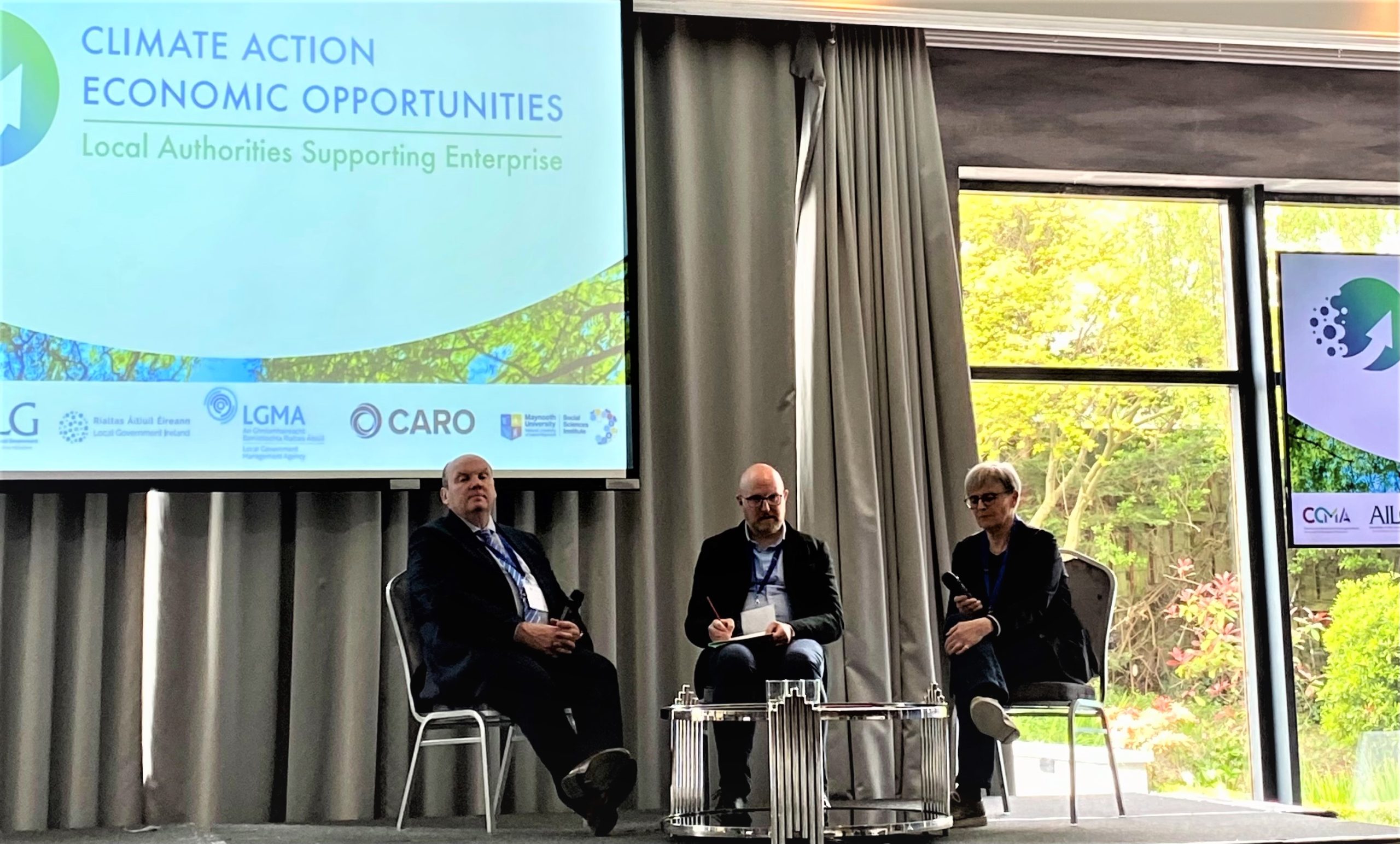
The area of sustainability in the Midlands was specifically highlighted by Terry Connolly from the Eastern and Midlands Regional Assembly with regards to the recently launched EU Just Transition Fund. The €169 million fund will support communities most negatively affected by the move away from fossil fuels and the cessation of commercial peat extraction. The fund, which will be in place until 2027, will ensure that no-one is left behind by the climate transition and will promote economic, social, and territorial cohesion in line with key EU priorities. It will support training and upskilling for former peat workers. For their communities, this funding will enable them to benefit from new green jobs, the development of affordable green energy, the decarbonisation of local transport, and the roll-out of new tourism enterprises. It will also support investment in sustainable agriculture and forestry, the development of SMEs and start-ups, as well as support for vital research and innovation.
Business Case Studies
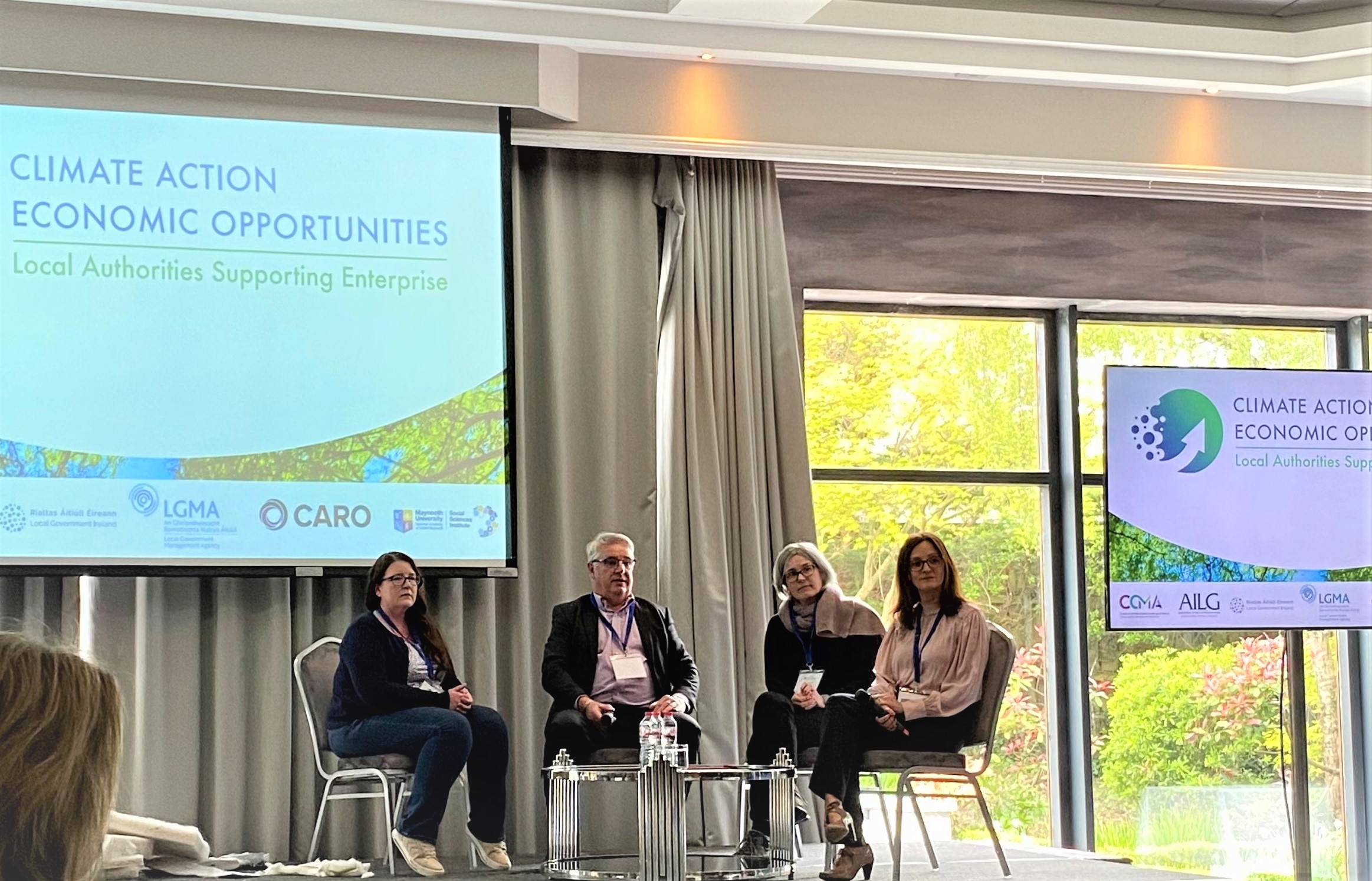
The Conference ended with an insightful Panel Discussion with 4 enterprises who have embraced sustainability in their businesses. The ambition and innovation was a clear indication of the power of Irish business to embrace the opportunities presented by sustainability.
- Sharon Barrington from IFF Plastics in Clare is a perfect example of circularity in action. The company takes in used farm, industrial and ocean plastics and repurposes them into a range of products including fencing posts. The zero waste company recycles 400 tonnes of plastic p.a., and is a founding member of CirculEIRE.
- Fiona Kelleher of Cork-based MyGug has developed a Micro Anaerobic Digester for use in the catering industry. The product is already exporting to global markets with Enterprise Ireland. Their unique egg-shaped digester is capable of processing up to 18kg of food waste per day, converting it into 36 litres of liquid fertiliser and enough biogas to power a commercial kitchen burner for up to 6 hours.
- Angie Nagle of BladeBridge spoke on their ambitions to create new uses for the Blades from decommissioned wind turbines. The blades are a highly engineered product, and unlike the pillars they sit on, they are composites which are not recyclable. BladeBridge have developed a range of unique uses for the blades, including the design of unique pedestrian and cycling bridges. Their reuse in this way reduces the need for cement and steel, reuses the blades, and in the process last longer while reducing carbon emissions by up to 30%.
- The Midlands was the last stop on the panel, with Rick Earley of award-winning CIRTEX based in Longford. The company is unique in Ireland in recycling and repurposing waste textiles from mattresses. A member of CirculEIRE, the company fully processes what is often a difficult product to recycle. Springs are reused for their steel and foam for carpet underlay. The toppers and padding are most in demand for reuse in mattresses, seating pads and soon for insulation. The materials are uniquely treated to shred, clean and sterilise the product, taking back to fully-certified pure polyester.
To start your Sustainability journey, contact one of the Business Support Agencies in the Midlands or visit the Climate Action 4 Business Toolkit


